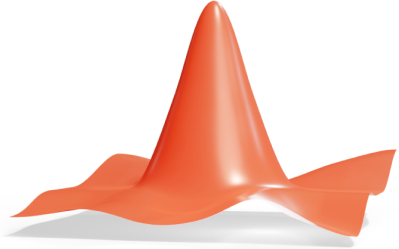How to Find the Scalar Product of Two Vectors (2D)
The scalar product or dot product is one of the most important mathematical operations related to vectors, most of all because it shows whether two vectors are perpendicular (° between them) or not. When two vectors are perpendicular, they are said to be orthogonal. The rule looks like this:
Rule
Orthogonal Vectors
You have an equivalence arrow between the expressions. This means that if one of them is true, the other one is also true.
There are two formulas for finding the dot product (scalar product). One is for when you have the coordinate form of the two vectors, and the other is used when you know the length of the vectors and the angle between them.
Formula
The Scalar Product
Example 1
Decide whether the vectors and are orthogonal.
Example 2
Find the scalar product of the vectors and , when , , and the angle between them is .
Because the scalar product is , you know that and are orthogonal.
Example 3
Find such that and are orthogonal.
For two vectors to be orthogonal, the dot product must be equal to .
For , the vectors are orthogonal. In that case, the second vector is


















